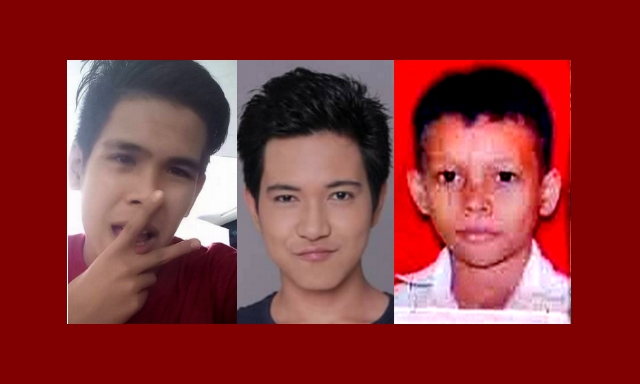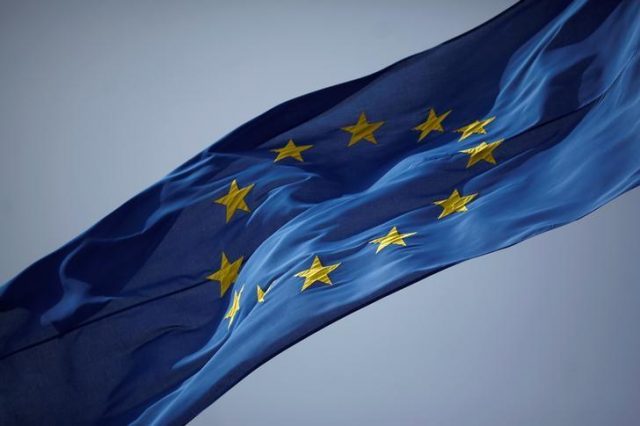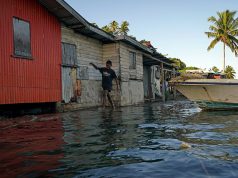MANILA – The Philippines’ dismal human rights record does not just affect the lives of victims and their families, but also the livelihood of thousands of people whose work relates to Philippine products that enjoy greatly reduced or zero tariffs when exported to the European Union.
This was underscored by TV5 legal analyst and Far Eastern University Institute of Law Dean Mel Sta. Maria on Tuesday during the Chief Justice Panganiban Professorial Chairs on Liberty and Prosperity Public Lecture at FEU Makati.
In his paper “Human Rights, Politics, International Law and Trade Arrangement and Economic Prosperity: A Reading of the Philippine Situation” Sta. Maria explained that trade arrangements between and among countries had recently factored in the upholding of human rights by the parties.
The Philippines is one of the countries benefiting from the EU’s Special Incentive Arrangement for Sustainable Development and Good Governance (GSP+). Products such as processed fruit, coconut oil, footwear, fish, and textiles are among thousands that enter the EU with eliminated or greatly reduced tariffs under GSP+.
Among the conditions to be eligible for GSP+, according to the European Commission website, are: that the country must have ratified the 27 GSP+ relevant international conventions on human and labor rights, environmental protection, and good governance; and that the monitoring bodies under those conventions have not identified any serious failure to effectively implement them.
Sta. Maria observed, however, that the Philippines was not compliant with many of these human rights-related conventions, especially the following:
1. International Covenant on Civil and Political Rights
2. Convention on the Elimination of All Forms of Discrimination Against Women
3. Convention on the Rights of the Child
4. United Nations Convention against Illicit Traffic in Narcotic Drugs and Psychotropic Substances
5. United Nations Convention against Corruption
Although the GSP+ is valid until 2023, the EU says it monitors whether beneficiaries are abiding by its commitments.
Sta. Maria cited a Philippine Star report in May 2017 that the EU was the biggest and fastest-growing export market for Philippine goods, with USD901 million of total exports.
According to the same report, however, the European Parliament had said, referring to the spate of extrajudicial killings related to the Philippines’ war on drugs, that “in the absence of any substantive improvements in the next few months, procedural steps (will be taken) with a view to the possible removal of GSP+ preferences.”
“A removal of the EU GSP+ will impact our economy negatively,” said Sta. Maria.
Dire consequences
“Consequently, this may entail increased expense on the part of Philippine exporters,” he warned. “They will pay entry-charges and taxes collectively amounting to millions of dollars. Money previously available and used to answer for salaries, employee benefits, government-mandated contributions, supplier bills, overseas transport expenses, local taxes, and other costs of production will be considerably reduced.”
He continued, “Also, exporters may be constrained not to fill up orders, depriving local suppliers of much-needed business. This will mean less exports and thus, less income for the exporters and the country. Worse, affected companies may resort to employee lay-offs in order to survive the adverse economic impact of the reduction in business. The children and spouses of these laid-off employees will ultimately suffer a period of economic hardship – debts may not be paid, mortgages may be foreclosed, loans with high interest incurred, assets sold to meet obligations, and schooling on the part of children momentarily stopped, among others.”
Despite these possible consequences of the Philippines’ failure to respect human rights, President Rodrigo Duterte himself had said, “I don’t care about human rights, you better believe me.”
“Every time President Duterte says, ‘I will kill you,’ or when he said, referring to three million drug addicts, ‘I’d be happy to slaughter them,’ he, the head of state, conveys a deadly message discordant with the rule of law. He even threatened to include human rights advocates: ‘I will include you because you are the reason why their numbers swell.’ Misinterpreted to their extreme, the declarations may be taken as words of encouragement, especially for people in authority like the Philippine National Police officers, to have the same motivation and objective. Put into action and ultimate fruition, it is EJK,” said Sta. Maria.
But in the Philippines, the death penalty was prohibited under Republic Act No. 9346.
“No one is above the law. Not even the Supreme Court can order death as punishment; neither can the President. For the death penalty to be imposed, the law must be amended to allow it. But even if an amendment is done, the President still has no power to order the killing of people because only the judiciary can impose punishment. That is the rule of law in our country. Any death sentence ordered by any other entity or person outside of the courts is extrajudicial. And if the order is carried out, it is EJK, short for extrajudicial killing – the commission of murder no less,” Sta. Maria stressed.
This, he said, is in violation of the International Covenant on Civil and Political Rights, as well as the Universal Declaration of Human Rights.
Although EJK was not yet a term used in Philippine laws, it was used to highlight its gravity over other types of murder, said Sta. Maria: “that it is the brutal extermination of ordinary people, especially the poor and the young, caused or executed usually by state agents.”
Message of impunity
He was also worried about Duterte’s assurance to law enforcers that he would pardon them if they killed suspected criminals involved in drugs. This conveyed a message of impunity, which Sta. Maria defined simply as “crime without accountability.”
As for the violation of the Convention on the Elimination of All Forms of Discrimination Against Women (CEDAW), Sta. Maria criticized Duterte for his messages that made light of rape.
“Remember during President Duterte’s meeting on May 26, 2017 with soldiers of the 2nd Mechanized Brigade of the Philippine Army in Iligan City, he jokingly said that, in the implementation of Martial Law, ”Pag naka-rape ka ng tatlo, aminin ko na akin ‘yun (If you rape three times, I’ll take the blame).’ This is a very bad joke. Under Section 7(1)(g) of the International Criminal Court Statute of which the Philippines is a state-party, rape committed during armed conflict is a crime against humanity. Soldiers must not commit rape during war or at any time. They should be advised not to listen to this kind of talk, whether uttered seriously or by way of a jest. How can the President go so low in his attitude toward women, especially in areas of conflict? These are not joking matters,” Sta. Maria said.
The Philippines was also violating the Convention on the Rights of the Child, he said, when state agents exploited children. His example: when Caloocan City police recently searched the home of a 51-year-old woman and stole cash and watches amounting to P30,000, using a minor to do the theft.
“More alarming though are the apprehension, torture, and eventual killings of the youth, like Kian delos Santos, Karl Angelo Arnaiz, and Reynaldo De Guzman, without due process,” Sta. Maria said.

The country has opened itself to accusations of having violated the United Nations Convention against Illicit Traffic in Narcotic Drugs and Psychotropic Substances, as well as the United Nations Convention against Corruption, too, in his view.
“The present controversy of the entry of huge amounts of shabu valued at no less than P6.4 billion at the very portals of a government agency, the Bureau of Customs, is unbelievable. No doubt, corruption involving huge amounts of ‘tara,’ meaning bribes, changed hands. Illegal narcotics came in so easily,” Sta. Maria said.
He continued, “Such entry boggles the mind and smacks of connivance or corrupt collusion, if not gross negligence. And also, what is supposed to be the Philippines’ most secured place – the National Penitentiary in Muntinlupa – is not impervious to drugs. Trading and corruption inside are rampant, and the government appears helpless to stop it.”
Will EU impose sanctions?
Would the EU impose sanctions on the Philippines?
“In similar situations where violation of rights has been prevalent, these granting-countries can be unwavering in sanctions, as in the Myanmar case – whose GSP, however, has already been reinstated. In some cases, they have been slow in meting out sanctions and, in other cases, only warnings were made without any follow through,” Sta. Maria said.
Nevertheless, he said, “the incriminating events and institutional set-ups in relation to the Philippines’ compliance or non-compliance [with] its obligations regarding core human rights principles, as well as proper governance, give GSP+ and foreign aid providers enough standing justification to either suspend the entitlement of the Philippines or straightforwardly withdraw it.”
He asked, “The country is experiencing some measure of economic growth, but how long will this last? If it will last for some time more, will it just be ‘business as usual’ without any improvements in the Philippines’ observance of core human rights values? Or is the Philippines bringing itself near the precipice of economic hardship?”









